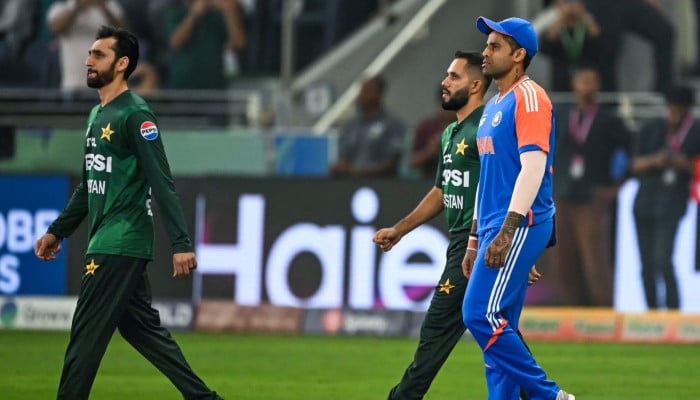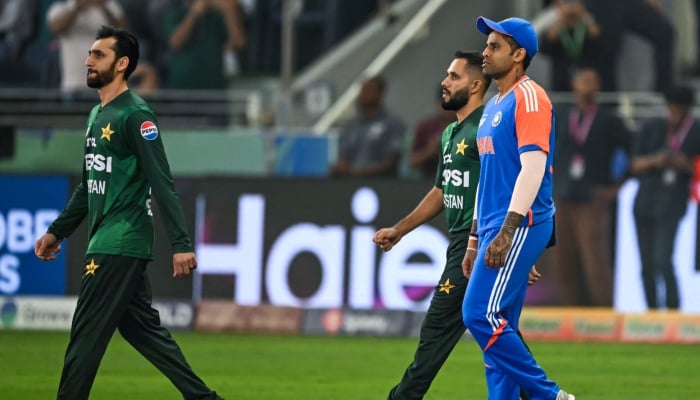The Board of Control for Cricket in India (BCCI) on Tuesday responded to suggestions made to the International Cricket Council (ICC) about excluding Pakistan-India matches from global tournaments.
Former England captain Michael Atherton had urged the ICC to stop scheduling fixtures that ensure India and Pakistan face each other in every major tournament.
According to an Indian news website, a BCCI official termed it ‘easy’ to give suggestions about the Pakistan-India matches, but argued that broadcasters would not agree to such a schedule which does not feature the blockbuster clash between the arch-rivals.
“It’s easy to talk about all this, but will sponsors and broadcasters agree to it? In today’s situation, if any major team, not just India, withdraws from a tournament, it will be difficult to attract sponsors,” the report quoted the BCCI official as saying.
Atherton’s remarks came in the wake of the tension and controversy that followed last month’s T20 Asia Cup 2025, where the two arch-rivals met three times, including in the final.
The event was marred by heated exchanges, while India’s captain Suryakumar Yadav also refused to shake hands with his Pakistani counterpart, Salman Agha.
The animosity extended beyond the men’s event, as the skippers of both women’s teams, Pakistan’s Fatima Sana and India’s Harmanpreet Kaur, also avoided shaking hands after their ODI Women’s World Cup match in Colombo on October 5.
Writing in his column for The Times (UK), Atherton acknowledged that the ICC’s decision to schedule India-Pakistan fixtures in global tournaments has strong commercial and diplomatic motivations.
The two teams have faced each other in the group stage of all 11 ICC events held since 2013.
“Despite its rarity — or perhaps because of it — the fixture carries huge economic clout,” Atherton wrote.
“It is one of the main reasons why ICC tournament broadcast rights are valued so highly, around $3 billion for the 2023–27 cycle,” he added.
He further noted that with bilateral cricket losing financial value, ICC events have grown in importance, making the India-Pakistan clash a crucial factor for broadcasters and stakeholders.
However, Atherton argued that the match has now become a platform for political and emotional display rather than sporting competition.
“If cricket was once a vehicle for diplomacy, it has now clearly become a proxy for broader tensions and propaganda,” he stated.
“There is little justification for a serious sport to manipulate tournament fixtures purely for economic benefit. Given how the rivalry is being exploited, there is even less reason to continue this practice.”
The 57-year-old concluded by urging the ICC to ensure transparency in future tournament draws.
“For the next broadcast rights cycle, the fixture draw should be transparent — and if India and Pakistan don’t meet every time, so be it.”
Discover more from Brackly News
Subscribe to get the latest posts sent to your email.




